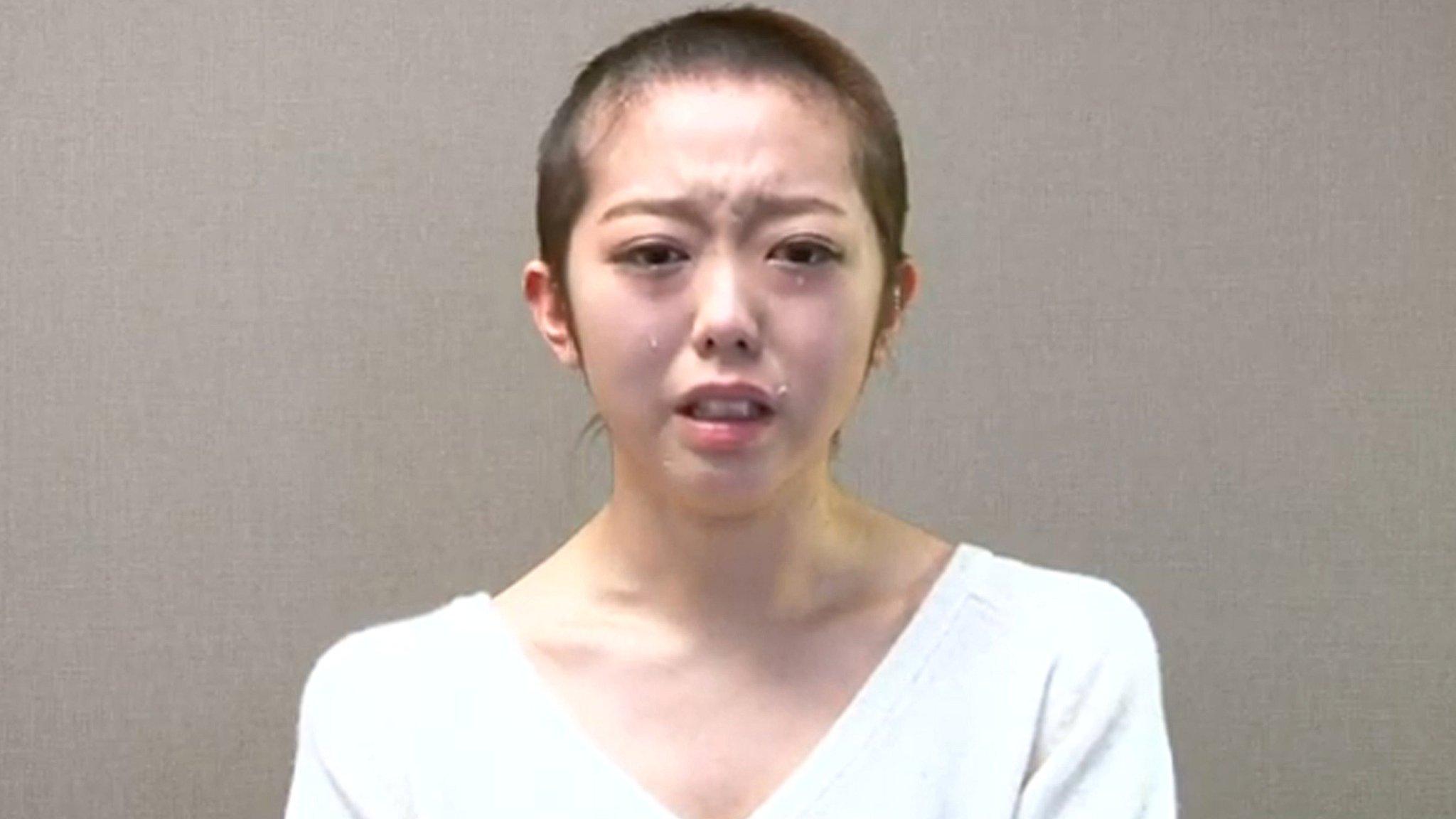Rock, paper scissors and the fierce world of Japanese pop
- Published
'Rock, paper, scissors' like you've never seen it before
What if it all depended on a rock, paper, scissors contest? Everything you had ever worked for your entire life, decided by a split-second choice. Rock. Paper. Scissors. For 24-year-old Miku Tanabe, that is exactly what happened.
When gripping footage emerged last month, external of what appeared to be the most intense and melodramatic response to victory in any rock, paper, scissors contest in the history of mankind, the internet was beside itself with bewilderment.
The crowd roared, she doubled over, wept with joy, the frenzy rose - and finally, she just looked at her hand, her bare hand, the true hero of this historic win.
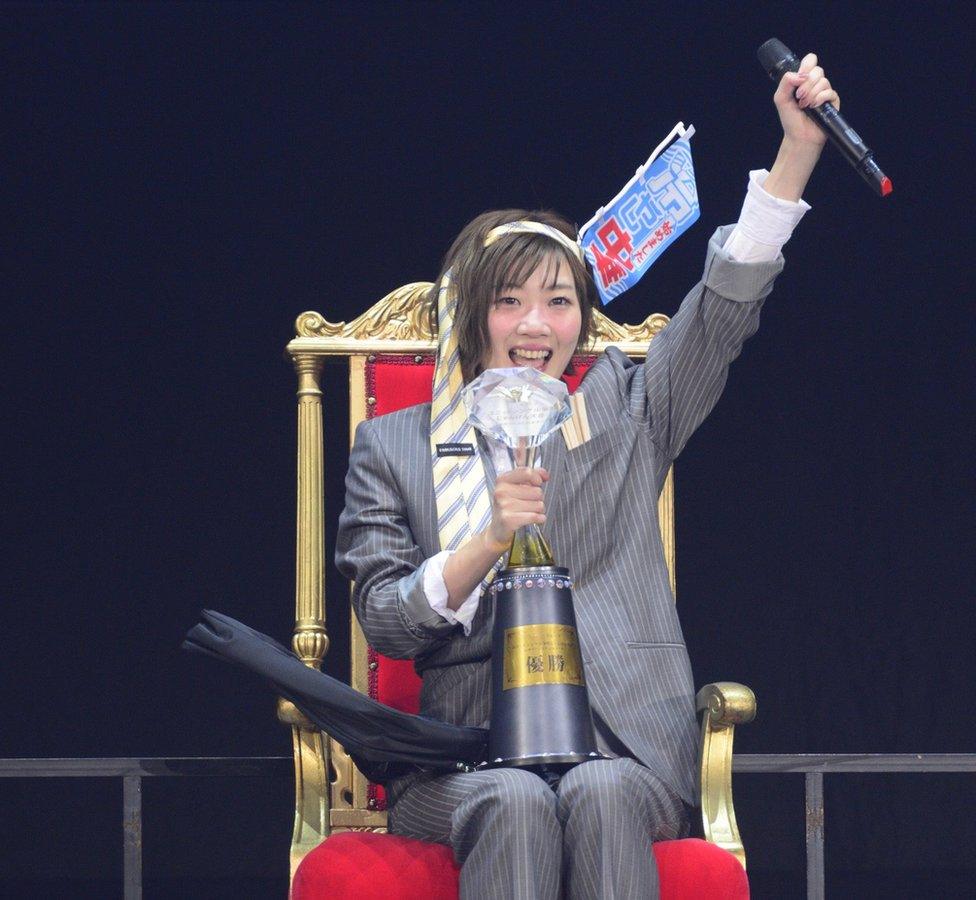
Despite being in AKB48 for years, Ms Tanabe never had a prominent role in the band
What most people did not know was this was a contest that decided which member of wildly popular Japanese girl group AKB48 would get to front the band.
"For the last decade, I didn't get to do much TV work or didn't stand in the front row of our performance at the AKB theatre," Tanabe told the BBC.
Suddenly her hysteria made much more sense. What lies behind the almost comic melodrama is actually a story of personal ambition, disappointment and an insight into Japan's unique music industry.
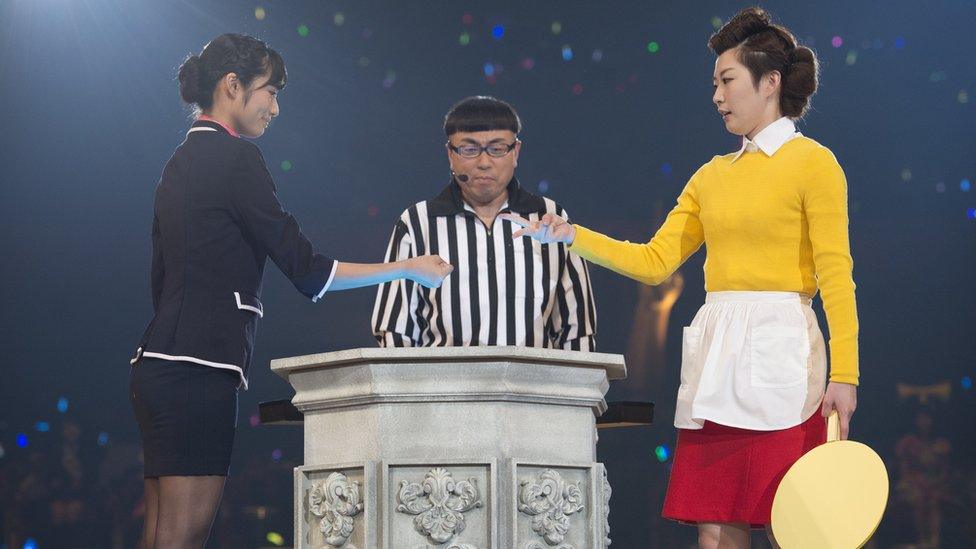
Competition for roles at the top of the sprawling band empire is fierce
Since 2005, the AKB48 group has sold more than 40 million singles and it has become little short of a phenomenon in the time it has been active.
There are some 130 girls, not 48, in AKB48, and not all of them get to be part of their songs or TV appearances. They gained popularity as "idols you can go and meet" because members hold a daily performance at the AKB theatre in Akihabara.
They are usually selected by producer Yasushi Akimoto based on their popularity. And in what's known as the "AKB48 general election", the members of not only AKB48 but also its sister groups have been ranked by their fans annually since 2009.

Ms Tanabe did not even stand in AKB48's election for the last two years, which in 2014 was won by Mayu Watanabe
The competition between them can be intense and despite making it to one of the most sought-after pop music outfits in the country, it is easy to feel like you have failed.
While Tanabe is a 10-year veteran of the band, it's safe to say she hasn't really enjoyed the spotlight. Her best performance was when she came 71st out of 296 girls in 2014 in the popularity contest.
At that time it seemed to be the best outcome she could hope for so for the last two years, she didn't even stand in the AKB general election.
She appeared to have given up becoming identified as a successful member of the group.
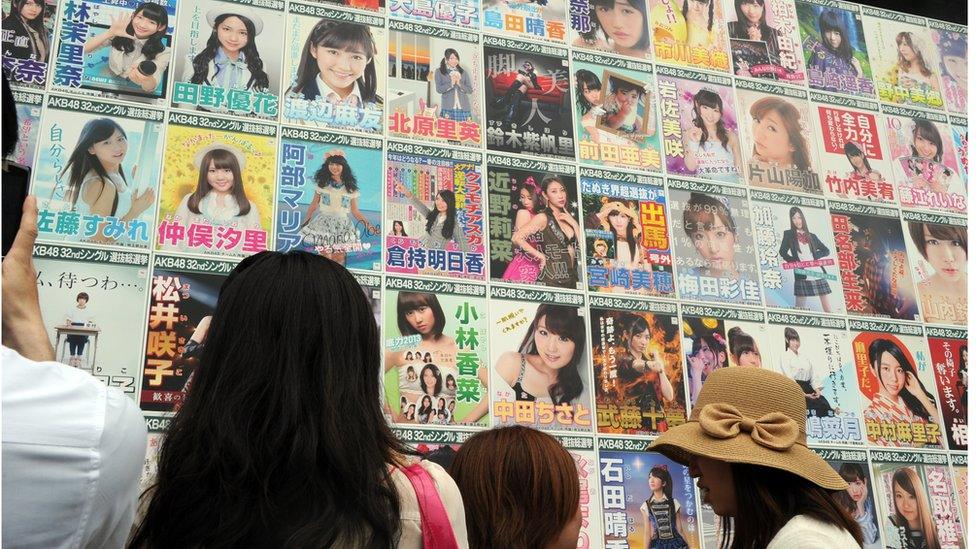
AKB48's election even has Japanese political candidate-style posters for band members standing
But seven years ago the selection took an unusual twist when the management began holding an annual competition of rock, paper, scissors, or scissor, paper, stone, as it is otherwise known.
"This competition gives an opportunity to any members, so when I first heard that I could grab an opportunity to be selected by winning at rock, paper, scissors, I was excited and was very motivated," she told the BBC.
For six years, she didn't come close to winning this game of chance. In 2010, she came 12th in the rock, paper, scissors competition. Then it got to October 2016.
"When I got to the final match, when I realised I might actually win, I was actually more scared than being thrilled," she recalled.
The rest is internet history.
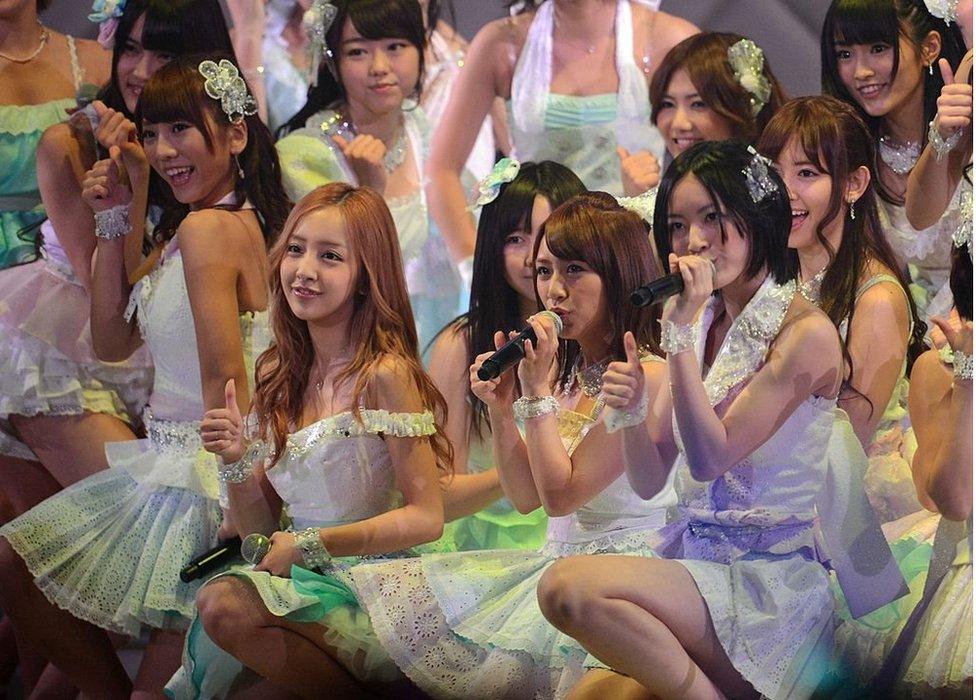
AKB48 is essentially a franchise, with sister "48" acts around Japan and Asia
As the winner, Tanabe got to be the lead singer of a seven-member unit for their newly released song "Sakasa zaka".
"I felt that all my hard work for the last decade has paid off," she told the BBC.
Four months before she won the rock, paper, scissors competition, she wrote in her blog, external that "I am probably approaching the end-of-life as an idol but I want to do what I can."
So the victory came as a surprise and reassured her that she was right not to have given up and felt justified in persevering despite the setbacks.
"I was selected because I continued being part of AKB48," she said.
"It was purely based on luck and the result was something I've long been wanting for."
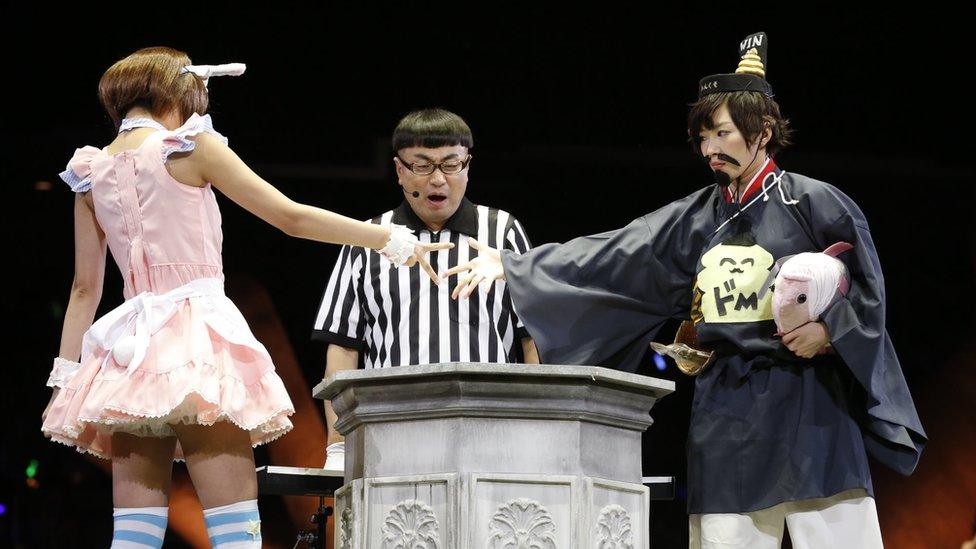
"Janken", or rock-paper-scissors, is widely used to settle trivial disputes in Japan
The competition is not without controversy.
Some viewers complained in 2012 - when Japan's territorial dispute with China was at its recent peak - to ask why a TV station dropped a news programme to broadcast a mere rock, paper, scissors competition.
When an already popular member won the competition in 2013, others asked if it was staged.
And despite the brief attention that Tanabe enjoyed, her song hasn't been performing too well.
This is a brutally competitive industry which is difficult to get into and even harder to maintain any hard-earned popularity and certainly comes with the dark side.
AKB48 as a group has so far survived its ups and downs, partly thanks to the reality TV elements of these competitions.
And Tanabe is well aware the spotlight won't be on her forever.
On the day of her CD sale, she had a poignant tweet, external: "I doubt I'd ever take centre stage again in my life," and urged her fans to buy it for memory's sake.
- Published26 January 2016
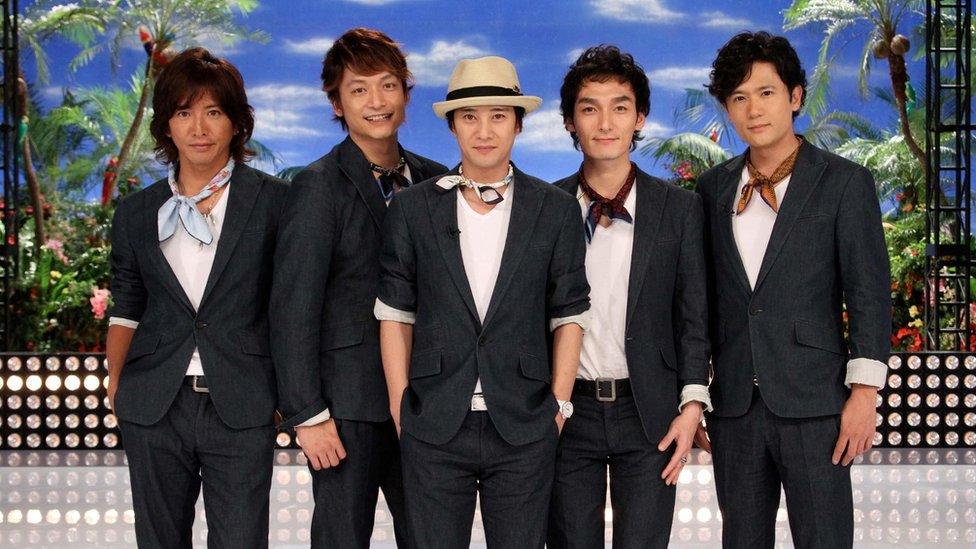
- Published10 February 2015
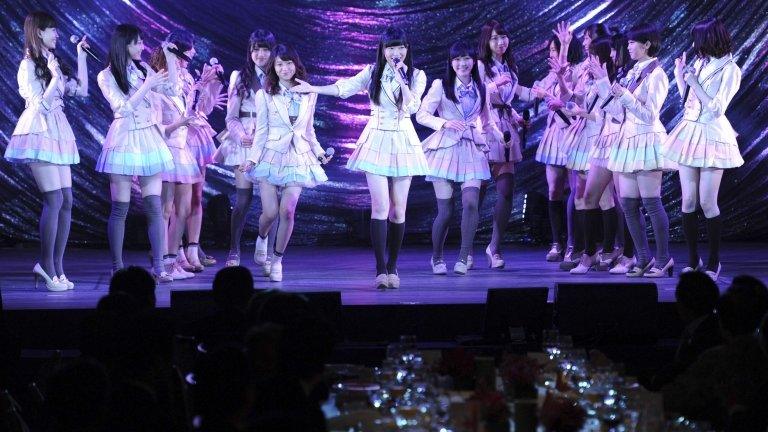
- Published1 February 2013
